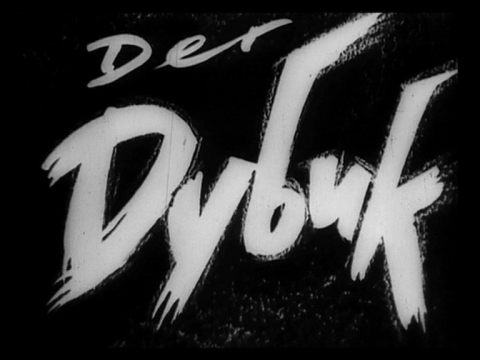Welcome to The Great Synagogue of Tykocin to showing a film „Dybuk” during the Festival Rise of Eastern Culture / Another Dimension!
August 28 at 20.00, The Great Synagogue of Tykocin (Branch of Muzeum Podlaskie in Białystok, Kozia str. 2, Tykocin)
free tickets available in Forum Cinema from 24th of August (number of seats is limited).
Dr Renata Piątkowska (Muzeum Historii Żydów Polskich POLIN) will give the lecture before the film.
DYBUK (1937)
dir. Michał Waszyński
The Dybbuk (Yiddish: דער דיבוק, Der Dibbuk; Polish: Dybuk) is a 1937 Yiddish language Polish fantasy film drama directed by Michał Waszyński. It is based on the play The Dybbuk by S. Ansky.
The Dybbuk, or Between Two Worlds is a 1914 play by S. Ansky, relating the story of a young bride possessed by a dybbuk – a malicious possessing spirit, believed to be the dislocated soul of a dead person – on the eve of her wedding. The Dybbuk is considered a seminal play in the history of Jewish theatre, and played an important role in the development of Yiddish theatre and theatre in Israel. The play was based on years of research by Ansky, who traveled between Jewish shtetls in Russia and Ukraine, documenting folk beliefs and stories of the Hassidic Jews.
In 1937, the play, with some changes in the plot structure, was filmed by director Michał Waszyński in Warsaw, starring Lili Liliana as Leah, Leon Liebgold as Hannan (Channon, in the English-language subtitles), and Abraham Morewski as Rabbi Azrael ben Hodos. The film adds an additional act before those in the original play: it shows the close friendship of Sender and Nisn as young men. Besides the language of the film itself, the picture is noted among film historians for the striking scene of Leah’s wedding, which is shot in the style of German Expressionism. The film is generally considered one of the finest in the Yiddish language. The Dybbuk was filmed on location in Kazimierz, Poland, and at the Falanga Film Studios in Warsaw. (www.en.wikipedia.org)
Organizer: Bialystok Cultural Centre – DKF „GAG”
Co-organizer: Muzeum Podlaskie in Białystok – Branch in Tykocin
The copy comes from Filmoteka Narodowa’s collection.



Fajne fotki... Ludzie byli silniejsi...Duże worki...Metr / Pół metra... dzisi
7 years ago